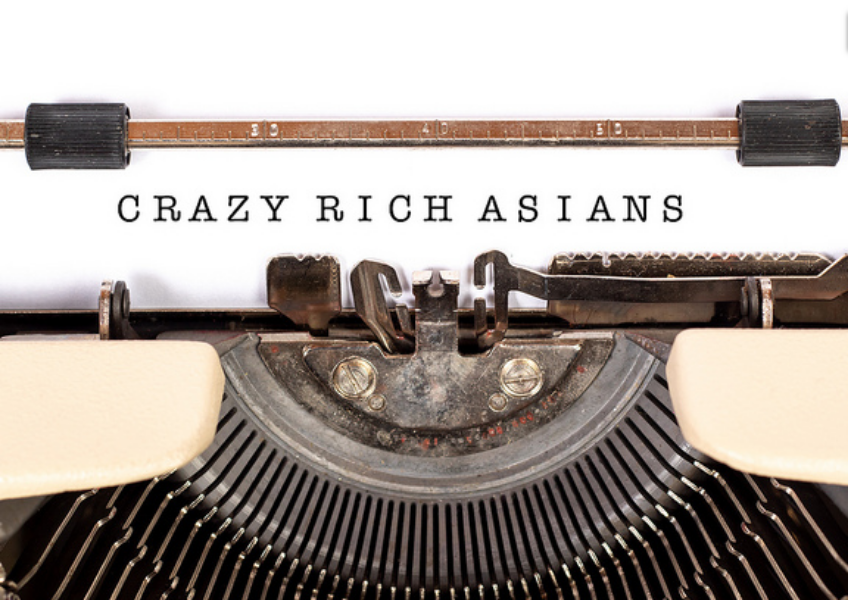Trilogy opens window to Asian wealth
STYLE AND OPULENCE. Kevin Kwan’s trilogy dives into the incomprehensible wealth of Singaporean families, spilling satire through footnotes and the dropping of brand names and big names. “Mr. Kwan knows how to deliver guilty pleasures. He keeps the repartee nicely outrageous, the excess wretched and the details wickedly delectable,” according to The New York Times.
“Crazy Rich Asians” started as a novel by Kevin Kwan, which has become part of a trilogy and a movie that brought in $238.5 million in the box office.
The novel follows the storyline of Nicholas (Nick) Young and Rachel Chu, the former the heir of one of the most powerful families in Singapore where the idea of rich is transformed, the latter is an American-Born Chinese NYU economics professor who is dating Nick.
Nick is bringing Rachel home to Singapore with no warning about his family to attend his best friend’s wedding (Colin Choo and Araminta), which provides Kwan just the excuse to satirize the opulence of the family and explain the politics of extreme Asian wealth.
Everyone is remarkably wealthy and beautiful, with naive Rachel in the center of it all as Nick’s family and the bachelorettes of Singapore turn against her to keep Nick from marrying a Chinese American. Her naivete is a tool to flaunt the richness of the Asian families but also to expose the snobbery Singaporeans have towards other groups, including American-Born Chinese and Mainland Chinese.
Meanwhile, Kwan entertains with the constant name dropping of made-up companies, the cost of lifestyles, and politics between the matriarch grandmother and the ludicrousness of the following generations.
His “absurdist comic touches provide the novel with its best moments” such as when “Colin and Araminta’s wedding dance to Dolly Parton‘s ‘I Will Always Love You,’ with alternating verses in English and Mandarin,” according to NPR.
The movie was released on August 15, 2018, and was directed by Jon M. Chu. Hints at another movie have already been released by actress Gemma Chan who played Astrid Leong in the first movie.
Warner Bros. has taken the “wait-and-see” approach to more movies, as any decisions will wait until Chu finished “In the Heights” which is set to be released in the summer of 2020, according to Cosmopolitan.
Remarkably different than the novel, the movie focuses its attention on Nick and Rachel’s relationship while the novel spans to cover the narratives of some of the ridiculous rich including Astrid Leong, Nick’s cousin, as she navigates her fraying relationship with her husband. Astrid’s plotline is mostly left out of the movie, though it expands in the subsequent books “China Rich Girlfriend” and “Rich People Problems.”
Nick and Rachel do take up most of the focus in the first novel, and “China Rich Girlfriend” switches to investigate Rachel’s newfound family rather than Nick’s. However, both are kept in the background as more power players wealth, snobbery, and absurd conflicts come into centerview.
For more on the movie, check out The Leaf’s first issue here, where two Asians discuss the success of the movie.
Sources:
- https://www.nytimes.com/2013/07/01/books/kevin-kwans-crazy-rich-asians-depicts-a-cult-of-opulence.html
- https://www.cosmopolitan.com/entertainment/movies/a22686749/crazy-rich-asians-movie-sequel/
- https://www.npr.org/2013/06/20/191389836/crazy-rich-asians-lives-of-the-0001-percent
- https://shsleaf.org/37942/leaf/september-2018-leaf/
- https://www.radiotimes.com/news/film/2019-03-05/crazy-rich-asians-sequel-gemma-chan-filming/
Your donation will support the student journalists of Sycamore High School. Your contribution will allow us to purchase equipment and cover our annual website hosting costs.







